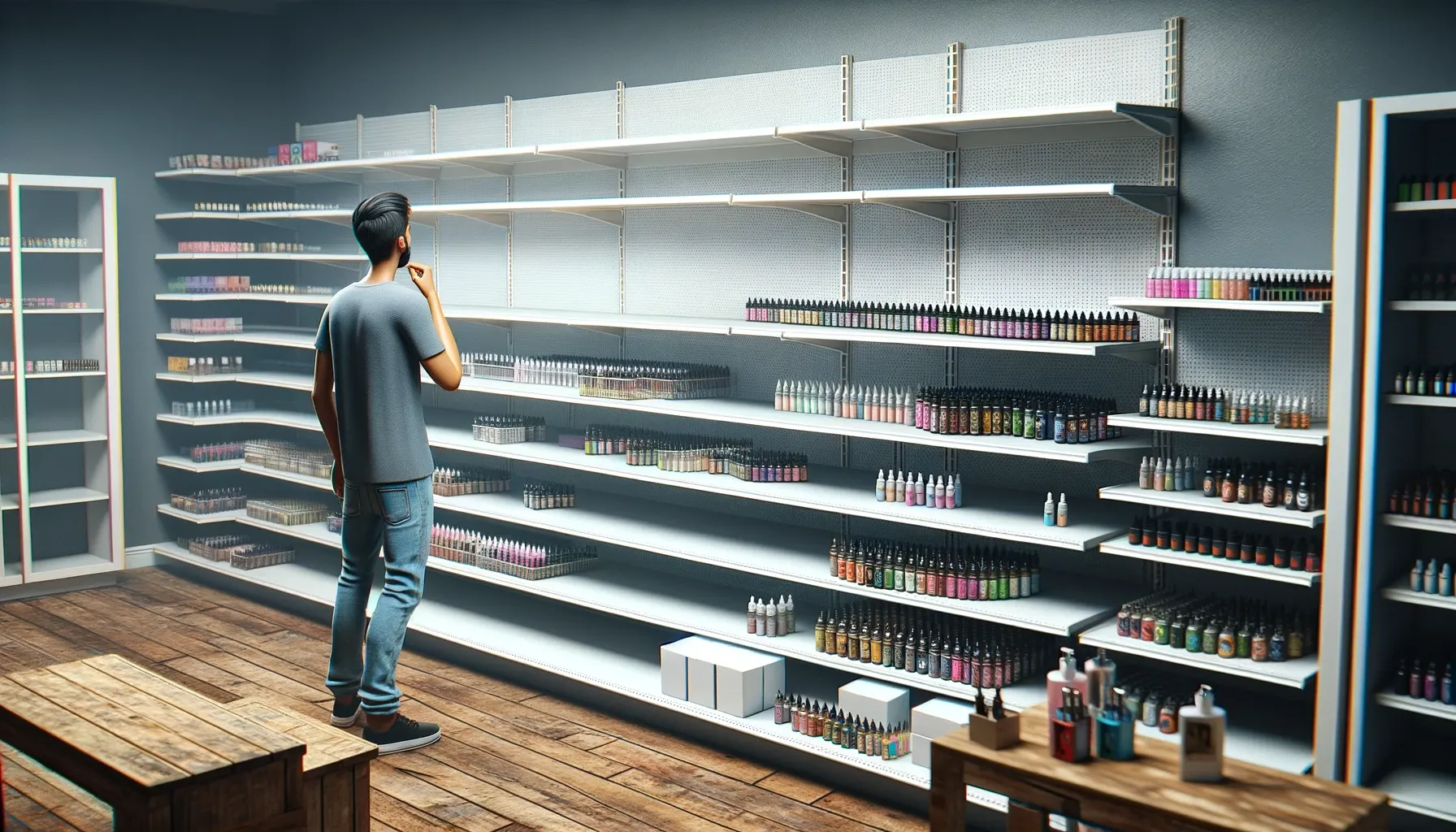
Smoke shop owners across Louisiana say the state's new vape product restrictions have decimated revenue, forcing them to remove nearly all disposable vapes from shelves. For some, sales have dropped by 60%.
Vape Ban Leaves Smoke Shop Shelves Bare
"Our walls are empty," said Omar Dawud, owner of Shreveport-area vape store chain 318 Cloudz. "It's really affecting me, to the point I'm thinking of moving out of this state."
The law, Act 414, aims to curb teen vaping by allowing only vapes with FDA marketing authorization or pending review sold in Louisiana. But the approved product list contains just nine vape brands, primarily owned by major tobacco companies.
Just a Handful of Products Remain
Dawud stocked 31 vape juice brands before the ban took effect. Now only two make the state's approved list. At other shops, customers are met with bare walls and covered shelves instead of the disposable, flavored vapes they seek.
"I turned away five, six customers today," said Mohamad Nofel of Deja Vu Smoke Shop.
Big Tobacco Stands to Benefit
Public health advocates view Act 414 as crucial to stopping the youth vaping epidemic. But some shop owners believe the law serves to consolidate the market, allowing a few tobacco giants to corner vape sales in Louisiana.
"They want to tell you what to sell and what not to sell," said Nofel. "It’s like a big, big monopoly.”
Steep Revenue Drops Leave Owners on Edge
With disposable and flavored vapes making up a large share of sales, smoke shop owners have seen revenue plunge since the new regulations took effect. Some report 50-60% declines, bringing steep economic uncertainty.
'Our Main Money Source' Dries Up
"We’ve been open since 10 a.m. and I’ve had two customers who bought something," said Phill Oso of Fly High Smoke Shop, calling vapes "our main money source."
The sudden loss of income has already led some shops to reduce staff. Others ponder more drastic measures, like Dawud's consideration of moving his five-store chain out of state.
Will Cigarette Sales Rise?
Some predict Act 414 could even drive up Louisiana’s smoking rates if former smokers return to cigarettes. Customer Orese Alford, who used vaping to quit, plans to switch to candy instead. But he expects many will buy traditional cigarettes again.
Legal Challenge Questions Tax Implications
Smoke shops have sued to halt Act 414, arguing it violates a state rule against amendments that are not relevant to an original bill. Act 414 began as a simple vape tax increase before morphing to include sales restrictions.
Will Revenue Projections Fall Short?
The lawsuit claims limiting products defeats the tax increase's original purpose - raising funds for state troopers' salaries. But regulators contend the state can now capture full tax revenue from approved vapes instead of missing collections on illegal online sales.
Both sides make reasonable arguments regarding the complex interplay between regulations and taxes. The case remains pending as shops face mounting struggles.
Finding a Way Forward
Smoke shop owners hope for relief, whether from the courts or through compromise. Some believe more targeted policies could curb youth vaping without devastating businesses.
Exploring Alternatives
"There could have been other ways to regulate or keep the kids from getting them," said Oso. "But Louisiana’s a drastic state."
As state officials aim to protect public health, they must also consider economic impacts on community businesses already facing slim margins. A balanced solution seems possible, but it remains elusive for now.

